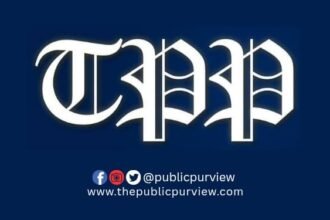ISLAMABAD: The Constitutional Court of the Supreme Court has raised critical questions about the trial of civilians involved in the May 9 events, specifically the basis for sending some suspects to military courts while others are being tried in Anti-Terrorism Courts (ATCs). During the proceedings, defense lawyer Khawaja Haris argued that the interpretation of Article 233, which related to the suspension of fundamental rights during a state of emergency, was incorrect when the decision was taken to carry out military trials for civilians. He stressed that fundamental rights can only be suspended in an emergency, as was the case during the tenure of General Pervez Musharraf. Justice Muhammad Ali Mazhar countered and said the case did not involve suspension of fundamental rights. He pointed out that during the Musharraf era, rights were suspended due to lack of right of appeal. Justice Aminuddin Khan raised the question of whether an emergency had been declared in the case, prompting Justice Mazhar to clarify that the suspension of fundamental rights requires an emergency to be in place. Judge Musarrat Hilali also pointed out that in this case, the fundamental rights of the accused were not suspended, nor was a state of emergency declared when the individuals were taken into military custody. Justice Musarrat Hilali asked who determines jurisdiction for trials in military courts and how the distinction is made between cases that are heard in the ATC and those sent to military courts. Justice Muhammad Ali Mazhar noted that all the suspects in the May 9 incidents were booked in similar FIRs and questioned why some were subjected to military courts while others faced the ATC. Justice Naeem Akhtar Afghan asked if there was any order by the ATC to hand over suspects to military courts and demanded clarification on the process of taking suspects into military custody. Justice Jamal Mandokhail asked for clarification on the principles and procedures governing the jurisdiction of the cases. He also noted: “A defendant is acquitted in an anti-terrorism court (ATC) but then convicted in a military court. Is there any special evidence presented in military courts that is not considered in civilian courts?” The bench further expressed concern over the lack of legal precedent for the trial of civilians in military courts without constitutional provisions such as suspension of rights. Judge Hilali asked if there were any examples of civilians being tried by military courts without a state of emergency being declared. Justice Hasan Azhar Rizvi pointed out that previous terrorist attacks on military installations, including a hijacking plot against an army chief’s plane, had been tried in civilian courts. He asked what distinguished the May 9 incidents to justify military trials. Justice Mandokhail suggested that instead of referring cases to military courts, the ATC should be strengthened to deal with these matters. He emphasized that ATCs operate based on evidence and raised concerns about the process and transparency of military trials. The court sought an FIR for all cases related to the May 9 incidents and detailed decisions of the ATC to hand over suspects to military courts. An Afghan judge revealed that 103 suspects in the May 9 cases were tried in military courts, while others remained in ATC courts. He asked how such distinctions were made and stressed the need to clarify the criteria used to allocate cases. The court noted that decisions regarding judicial proceedings must be supported by evidence and sound in law. He emphasized the importance of a clear legal framework to ensure transparency and fairness in the judicial process. The Supreme Court adjourned the hearing of the internal appeal against the military trials of civilians until tomorrow (Friday). The bench is expected to hear more arguments from Khawaja Haris as the case continues.
Supreme Court questions ‘selective military trials’ of May 9 suspects

You Might Also Like
Leave a comment






